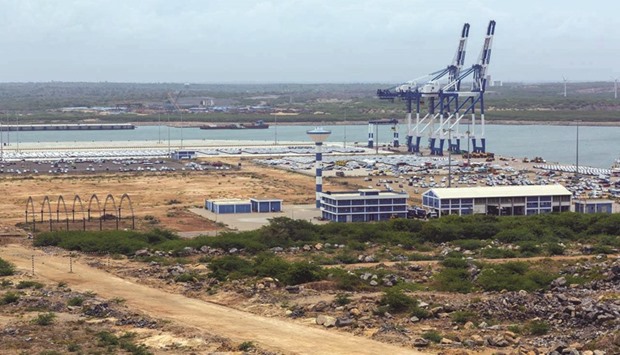Sri Lankan security forces fired warning shots yesterday to disperse striking dock workers who have prevented a Japanese vessel from leaving the port for four days, a navy spokesman said.
Captain Alavi Akram said armed navy sailors used boats to reach a pier occupied by dozens of workers preventing Japan’s “K” Line vessel Hyperion Highway leaving for its next
destination Oman.
“We were called in because the action of the dock workers amounted to sea piracy,” Akram said. “We went in to make sure that the foreign vessel could have free passage.”
A spokesman for the local agent for the vessel said its Bulgarian captain and 24 other crew members from the Philippines were safe, but the shipping line was losing money at the rate of $100,000 a day because it had been unable to leave on schedule.
Akram said the vessel should now be able to leave by tonight.
Temporary port labourers at Hambantota port have been striking since Tuesday demanding that they be taken on as permanent employees of the state-owned Sri Lanka Port Authority, according to local officials.
Opposition legislators told parliament yesterday that eight workers were wounded when the navy stormed the main pier, but the government denied there were casualties.
Sri Lanka signed an agreement in principle on Thursday to sell an 80% in the loss-making $1.3bn Hambantota port, close to one of the world’s busiest sea lanes, to a Chinese state-owned company.
Under the deal, China Merchants Port Holdings Co would pay about $1.1bn for its share of the port and adjoining land in Hambantota district.
Sri Lanka’s ports authority would own 20%. Officials said they hoped to complete the
arrangement by early January.
Sri Lankan officials say the Hambantota port, which is financed by more than $1bn in loans from a Chinese state-owned bank and built by a Chinese state-owned engineering company, is bleeding money. Revenue covers a sliver of its
repayment obligations.
Construction was started on the port and a nearby international airport by Sri Lanka’s former president, Mahinda Rajapakse, who was voted out of
office in 2014.
Sri Lanka’s new leaders have long sought to renegotiate terms of at least some of the $8bn in debt the country owes China and to attract money from other sources. They have also tried to woo the West by improving human rights and pushing
post-civil war reconciliation.

Port of Hambantota, 240km from Colombo, is financed by more than $1bn in loans from a Chinese state-owned bank.
